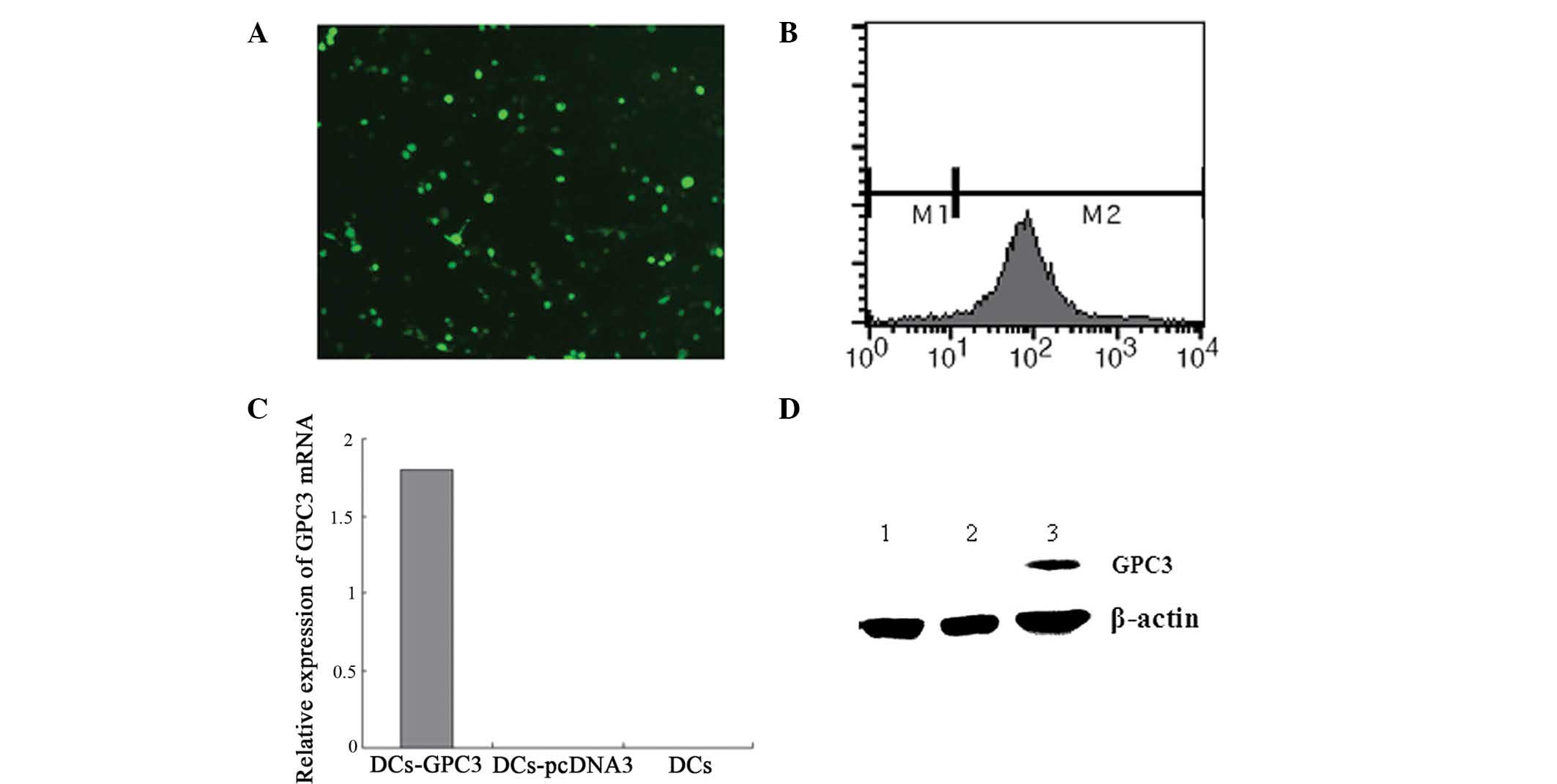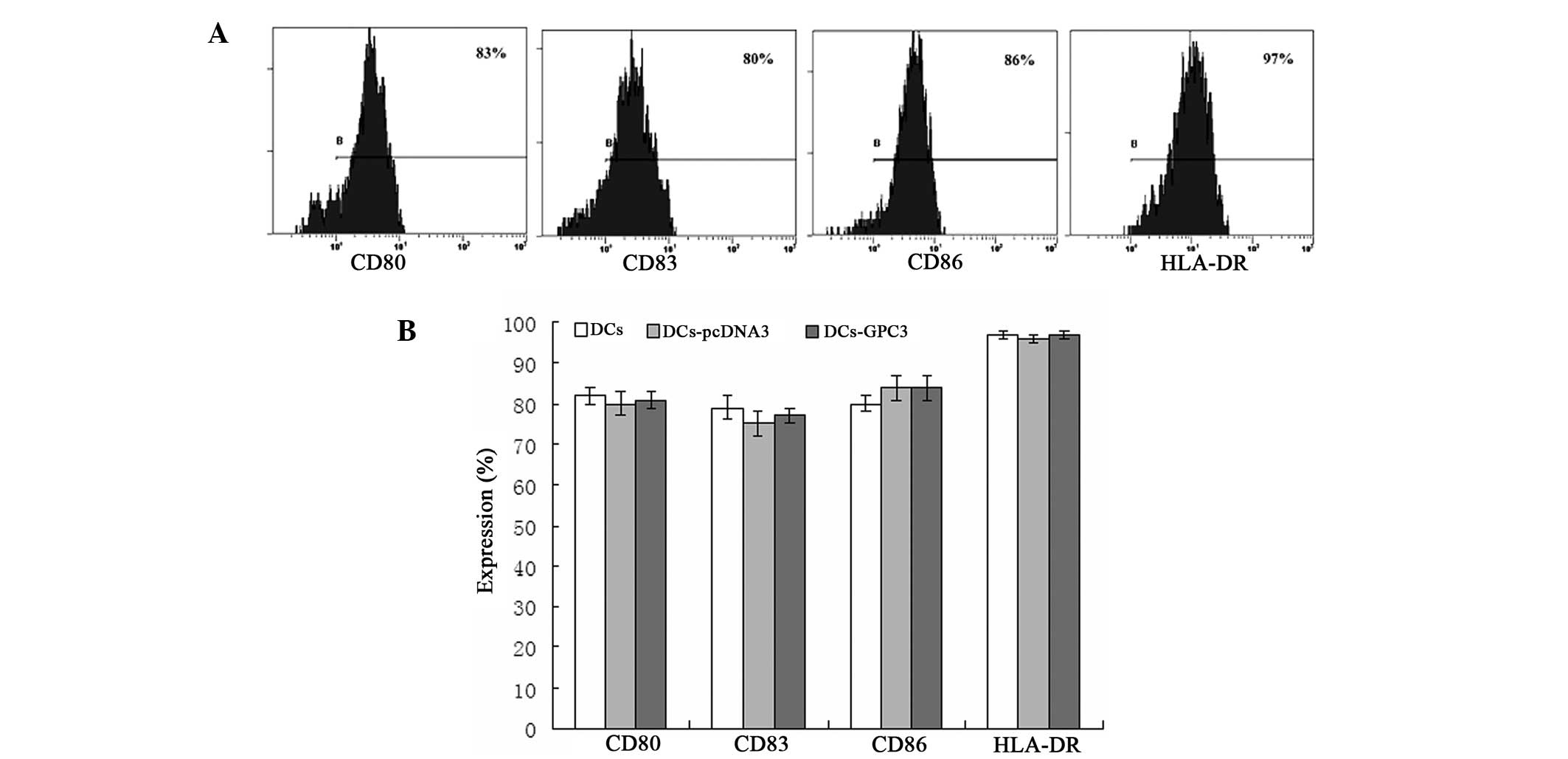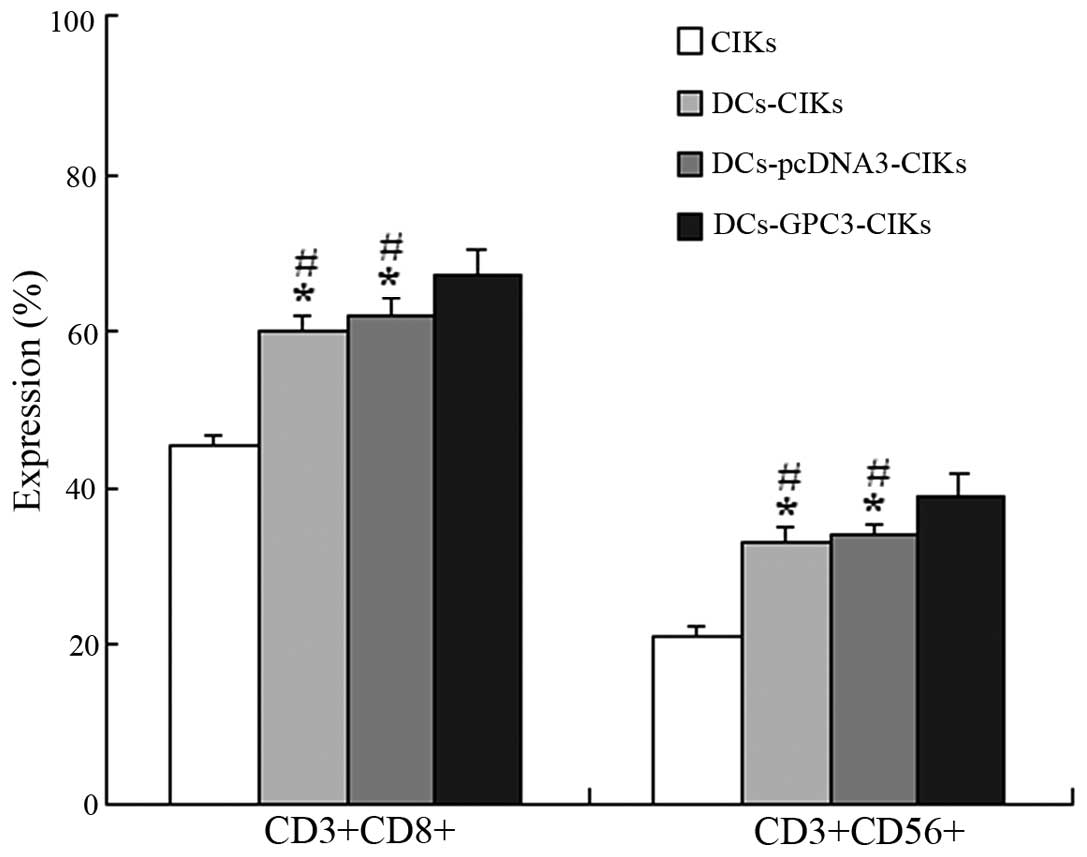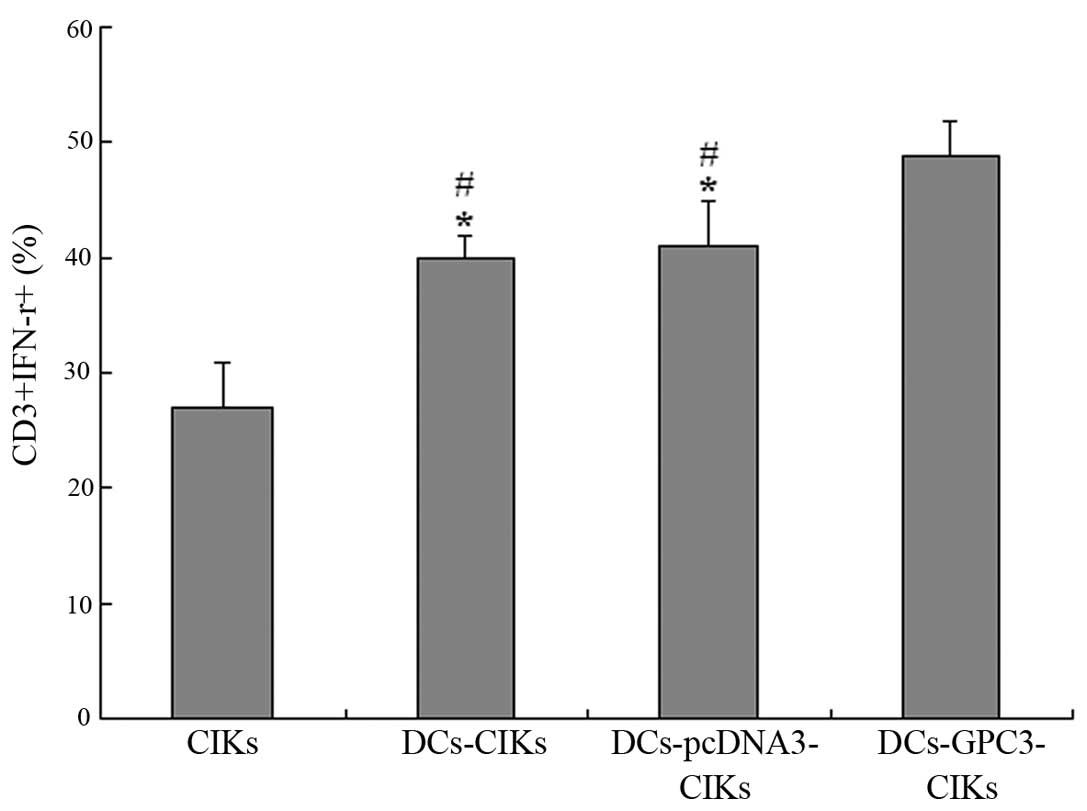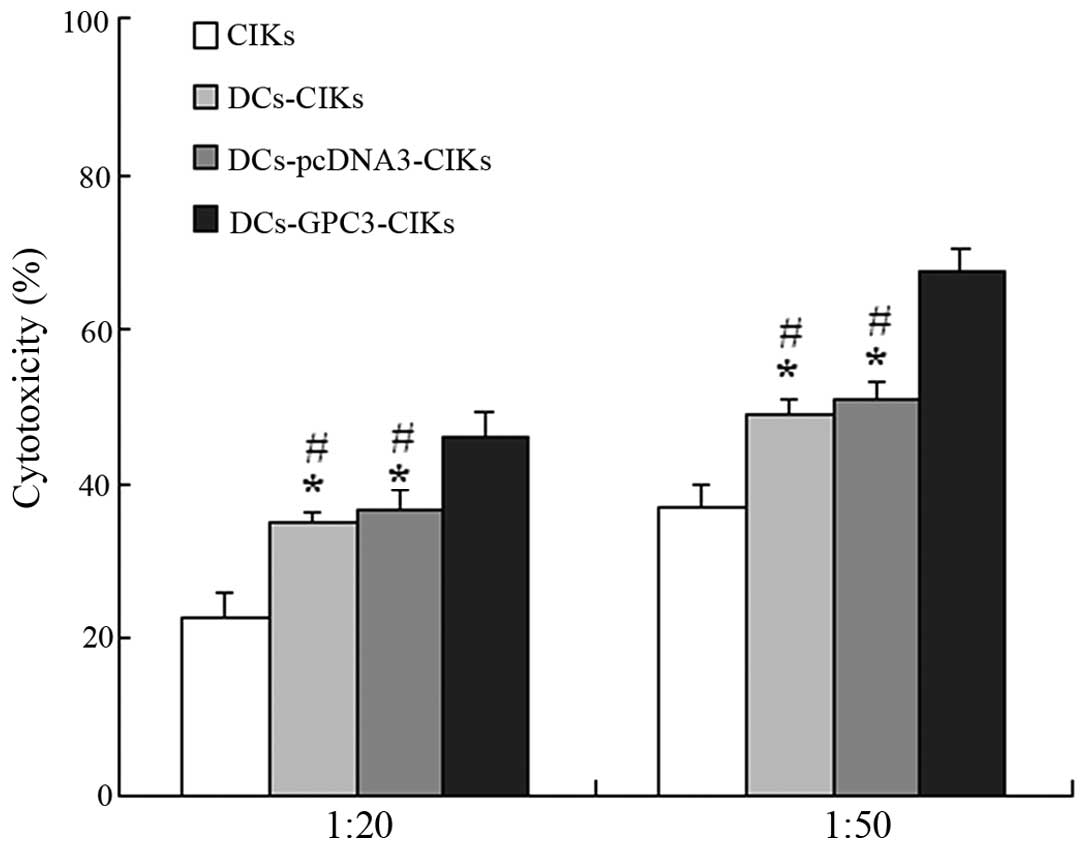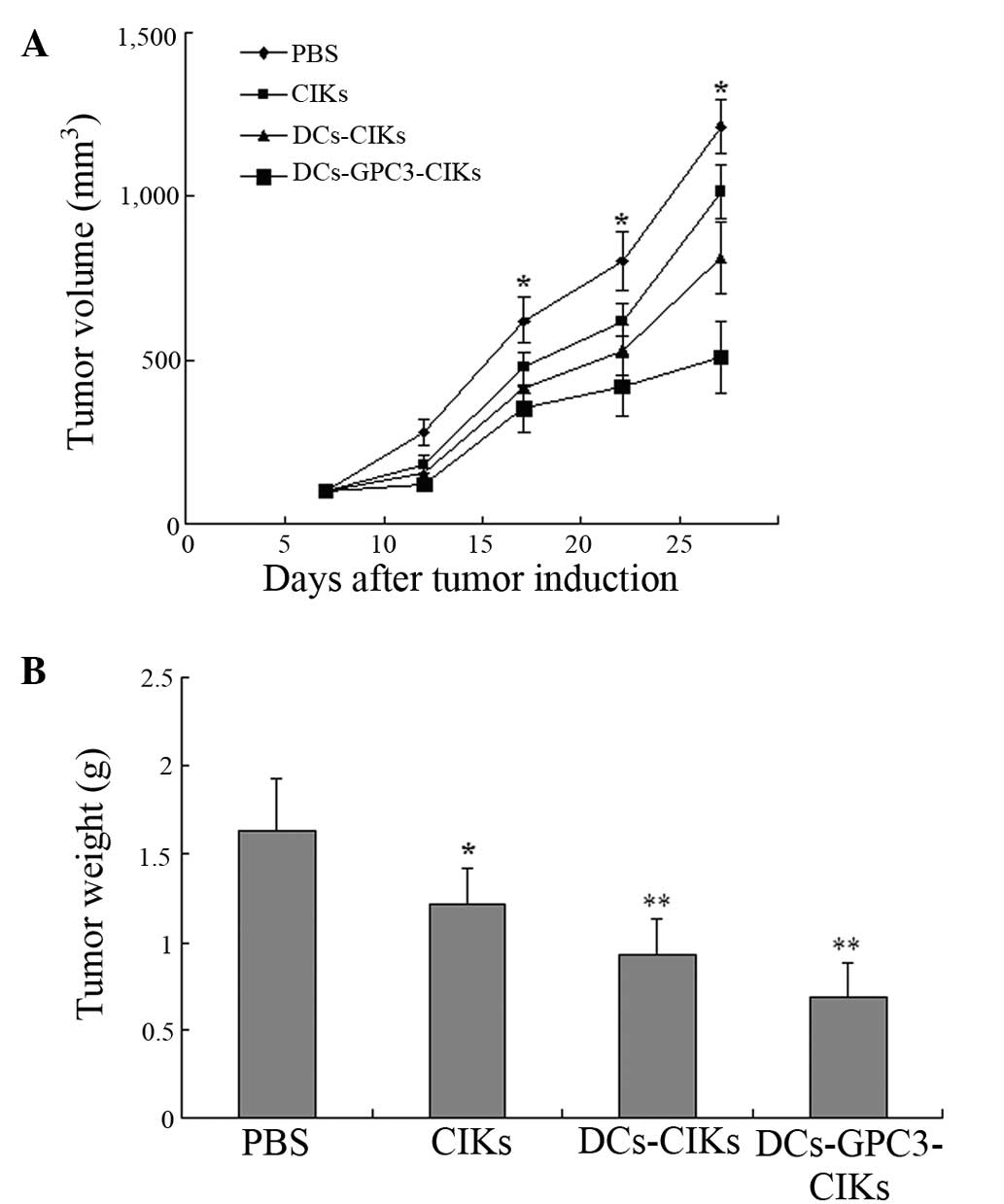|
1
|
Schütte K, Bornschein J and Malfertheiner
P: Hepatocellular carcinoma - epidemiological trends and risk
factors. Dig Dis. 27:80–92. 2009. View Article : Google Scholar
|
|
2
|
Mittal S and El-Serag HB: Epidemiology of
hepatocellular carcinoma: consider the population. J Clin
Gastroenterol. 47(Suppl): S2–S6. 2013. View Article : Google Scholar : PubMed/NCBI
|
|
3
|
Vivarelli M, Montalti R and Risaliti A:
Multimodal treatment of hepatocellular carcinoma on cirrhosis: An
update. World J Gastroenterol. 19:7316–7326. 2013. View Article : Google Scholar : PubMed/NCBI
|
|
4
|
Nishikawa H, Arimoto A, Wakasa T, et al:
Effect of transcatheter arterial chemoembolization prior to
surgical resection for hepatocellular carcinoma. Int J Oncol.
42:151–160. 2013.
|
|
5
|
Greten TF, Duffy AG and Korangy F:
Hepatocellular carcinoma from an immunologic perspective. Clin
Cancer Res. 19:6678–6685. 2013. View Article : Google Scholar : PubMed/NCBI
|
|
6
|
Xie F, Zhang X, Li H, et al: Adoptive
immunotherapy in postoperative hepatocellular carcinoma: a systemic
review. PLoS One. 7:e428792012. View Article : Google Scholar : PubMed/NCBI
|
|
7
|
Raval RR, Sharabi AB, Walker AJ, et al:
Tumor immunology and cancer immunotherapy: summary of the 2013 SITC
primer. J Immunother Cancer. 2:142014. View Article : Google Scholar : PubMed/NCBI
|
|
8
|
Weng DS, Zhou J, Zhou QM, et al: Minimally
invasive treatment combined with cytokine-induced killer cells
therapy lower the short-term recurrence rates of hepatocellular
carcinomas. J Immunother. 31:63–71. 2008. View Article : Google Scholar
|
|
9
|
Yu X, Xia W, Zhang T, et al: Enhanced
cytotoxicity of IL-24 gene-modified dendritic cells co-cultured
with cytokine-induced killer cells to hepatocellular carcinoma
cells. Int J Hematol. 92:276–282. 2010. View Article : Google Scholar : PubMed/NCBI
|
|
10
|
Su S, Zhou H, Xue M, et al: Anti-tumor
efficacy of a hepatocellular carcinoma vaccine based on dendritic
cells combined with tumor-derived autophagosomes in murine models.
Asian Pac J Cancer Prev. 14:3109–3116. 2013. View Article : Google Scholar : PubMed/NCBI
|
|
11
|
Palucka K and Banchereau J: Cancer
immunotherapy via dendritic cells. Nat Rev Cancer. 12:265–277.
2012. View
Article : Google Scholar : PubMed/NCBI
|
|
12
|
Kantoff PW, Higano CS, Shore ND, et al:
IMPACT Study Investigators: Sipuleucel-T immunotherapy for
castration-resistant prostate cancer. N Engl J Med. 363:411–422.
2010. View Article : Google Scholar : PubMed/NCBI
|
|
13
|
Jiang J, Wu C and Lu B: Cytokine-induced
killer cells promote antitumor immunity. J Transl Med. 11:832013.
View Article : Google Scholar : PubMed/NCBI
|
|
14
|
Sangiolo D: Cytokine induced killer cells
as promising immunotherapy for solid tumors. J Cancer. 2:363–368.
2011. View Article : Google Scholar : PubMed/NCBI
|
|
15
|
O’Beirne J, Farzaneh F and Harrison PM:
Generation of functional CD8+ T cells by human dendritic
cells expressing glypican-3 epitopes. J Exp Clin Cancer Res.
29:482010. View Article : Google Scholar
|
|
16
|
Wang YL, Zhu ZJ, Teng DH, et al:
Glypican-3 expression and its relationship with recurrence of HCC
after liver transplantation. World J Gastroenterol. 18:2408–2414.
2012. View Article : Google Scholar : PubMed/NCBI
|
|
17
|
Filmus J and Capurro M: Glypican-3: a
marker and a therapeutic target in hepatocellular carcinoma. FEBS
J. 280:2471–2476. 2013. View Article : Google Scholar : PubMed/NCBI
|
|
18
|
Gao W and Ho M: The role of glypican-3 in
regulating Wnt in hepatocellular carcinomas. Cancer Rep. 1:14–19.
2011.PubMed/NCBI
|
|
19
|
Qi XH, Wu D, Cui HX, et al: Silencing of
the glypican-3 gene affects the biological behavior of human
hepatocellular carcinoma cells. Mol Med Rep. 10:3177–3184.
2014.PubMed/NCBI
|
|
20
|
Wang YF, Kunda PE, Lin JW, et al:
Cytokine-induced killer cells co-cultured with complete tumor
antigen-loaded dendritic cells, have enhanced selective
cytotoxicity on carboplatin-resistant retinoblastoma cells. Oncol
Rep. 29:1841–1850. 2013.PubMed/NCBI
|
|
21
|
Huls MH, Figliola MJ, Dawson MJ, et al:
Clinical application of Sleeping Beauty and artificial antigen
presenting cells to genetically modify T cells fromperipheral and
umbilical cord blood. J Vis Exp. 72:e500702013.
|
|
22
|
Wang Y, Shen Z, Zhu Z, et al: Clinical
values of AFP, GPC3 mRNA in peripheral blood for prediction of
hepatocellular carcinoma recurrence following OLT: AFP, GPC3 mRNA
for prediction of HCC. Hepat Mon. 11:195–199. 2011.PubMed/NCBI
|
|
23
|
Wang YL, Zhang YY, Zhou YL, et al:
T-helper and T-cytotoxic cell subsets monitoring during active
cytomegalovirus infection in liver transplantation. Transplant
Proc. 36:1498–1499. 2004. View Article : Google Scholar : PubMed/NCBI
|
|
24
|
Wayteck L, Breckpot K, Demeester J, et al:
A personalized view on cancer immunotherapy. Cancer Lett.
352:113–125. 2014. View Article : Google Scholar
|
|
25
|
Ascierto PA, Kalos M, Schaer DA, et al:
Biomarkers for immunostimulatory monoclonal antibodies in
combination strategies for melanoma and other tumor types. Clin
Cancer Res. 19:1009–1020. 2013. View Article : Google Scholar : PubMed/NCBI
|
|
26
|
Fu SJ, Qi CY, Xiao WK, et al: Glypican-3
is a potential prognostic biomarker for hepatocellular carcinoma
after curative resection. Surgery. 154:536–544. 2013. View Article : Google Scholar : PubMed/NCBI
|
|
27
|
Xu C, Yan Z, Zhou L and Wang Y: A
comparison of glypican-3 with alpha-fetoprotein as a serum marker
for hepatocellular carcinoma: a meta-analysis. J Cancer Res Clin
Oncol. 139:1417–1424. 2013. View Article : Google Scholar : PubMed/NCBI
|
|
28
|
Ruan J, Liu F, Chen X, et al: Inhibition
of glypican-3 expression via RNA interference influences the growth
and invasive ability of the MHCC97-H human hepatocellular carcinoma
cell line. Int J Mol Med. 28:497–503. 2011.PubMed/NCBI
|
|
29
|
Chen IP, Ariizumi SI, Nakano M, et al:
Positive glypican-3 expression in early hepatocellular carcinoma
predicts recurrence after hepatectomy. J Gastroenterol. 49:117–125.
2014. View Article : Google Scholar :
|
|
30
|
Zhu AX, Gold PJ, El-Khoueiry AB, et al:
First-in-man phase I study of GC33, a novel recombinant humanized
antibody against glypican-3, in patients with advanced
hepatocellular carcinoma. Clin Cancer Res. 19:920–928. 2013.
View Article : Google Scholar : PubMed/NCBI
|
|
31
|
Sawada Y, Yoshikawa T, Fujii S, et al:
Remarkable tumor lysis in a hepatocellular carcinoma patient
immediately following glypican-3-derived peptide vaccination: an
autopsy case. Hum Vaccin Immunother. 9:1228–1233. 2013. View Article : Google Scholar : PubMed/NCBI
|
|
32
|
Tada Y, Yoshikawa T, Shimomura M, et al:
Analysis of cytotoxic T lymphocytes from a patient with
hepatocellular carcinoma who showed a clinical response to
vaccination with a glypican-3-derived peptide. Int J Onco.
43:1019–1026. 2013.
|
|
33
|
Thanendrarajan S, Nowak M, Abken H, et al:
Combining cytokine-induced killer cells with vaccination in cancer
immunotherapy: more than one plus one? Leuk Res. 35:1136–1142.
2011. View Article : Google Scholar : PubMed/NCBI
|
|
34
|
Artusio E, Hathaway B, Stanson, et al:
Transfection of human monocyte-derived dendritic cells with native
tumor DNA induces antigen-specific T-cell responses in vitro.
Cancer Biol Ther. 5:1624–1631. 2006. View Article : Google Scholar : PubMed/NCBI
|
|
35
|
Landi A, Babiuk LA and van Drunen
Littel-van den Hurk S: High transfection efficiency, gene
expression, and viability of monocyte-derived human dendritic cells
after nonviral gene transfer. J Leukoc Biol. 82:849–860. 2007.
View Article : Google Scholar : PubMed/NCBI
|
|
36
|
Zhang Q, Wang L, Luo C, et al: Phenotypic
and functional characterization of cytokine-induced killer cells
derived from preterm and term infant cord blood. Oncol Rep.
32:2244–2252. 2014.PubMed/NCBI
|
|
37
|
Sun Z, Shi L, Zhang H, et al: Immune
modulation and safety profile of adoptive immunotherapy using
expanded autologous activated lymphocytes against advanced cancer.
Clin Immunol. 138:23–32. 2011. View Article : Google Scholar
|
|
38
|
Guo DW, Zhang SY, Hou XZ, et al: Glypican3
in genetically modified human monocyte-derived dendritic cells
induced specific cytotoxity against glypican3 overexpressing human
hepatocellular carcinoma cells in vitro. Saudi Med J. 29:1235–1240.
2008.PubMed/NCBI
|















